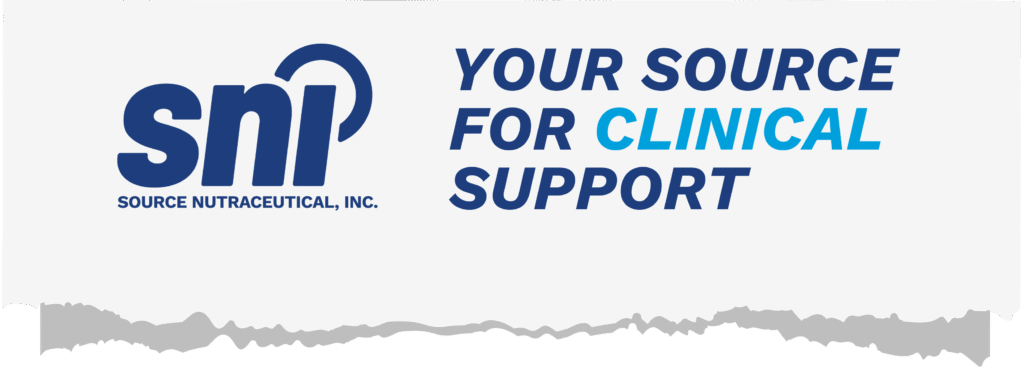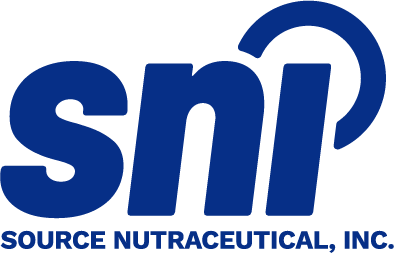On October 17th, Health Canada has confirmed it will implement the ICH E6(R3) Good Clinical Practice (GCP) guideline, a major international update to the way clinical trials are designed, managed, and documented. The goal is to strengthen participant safety, improve data quality, and modernize how clinical research is conducted in Canada.
Learn more about what to expect, why this change matters, and the key considerations outlined in the article below. Please note that this content is intended for informational purposes only and should not be interpreted as regulatory advice. For questions regarding ICH E6(R3) implementation or to discuss our clinical research services, we encourage you to contact SNI’s Clinical Trials team.
What Is the ICH E6(R3) Guideline?

The International Council for Harmonisation (ICH) is a global organization that brings together health authorities to develop shared scientific and technical standards for drug and medical research. One of its most influential documents is the E6 GCP guideline, which defines how clinical trials should be ethically and scientifically conducted.
The newest version, E6(R3), replaces the earlier E6(R2) guideline. It introduces a more flexible, risk-based approach to quality management. Rather than applying the same level of oversight to every activity, E6(R3) encourages organizations to focus their resources on processes that are most important for participant safety and reliable data. This approach is known as Critical to Quality (CtQ) management.
Why This Change Matters
E6(R3) reflects how clinical research has evolved in recent years, including the use of electronic data capture, decentralized trial activities, and advanced monitoring technologies. The guideline allows sponsors and investigators to be more adaptable while maintaining accountability and transparency.
By adopting E6(R3), Health Canada is aligning its clinical trial standards with other leading regulators such as the United States, the European Union, and Japan. This harmonization makes it easier for data from Canadian trials to be accepted internationally and supports innovation across the life sciences sector.
Implementation Timeline and Transition Period for E6(R3)
Health Canada will begin applying the new ICH E6(R3) GCP guideline on April 1, 2026. To support a smooth transition, a six-month implementation period has been established, allowing sponsors, contract research organizations (CROs), investigators, and research ethics boards to make the necessary procedural and operational adjustments before the guideline becomes fully enforceable.
This transition window is intended to give the research community sufficient time to understand the new requirements, assess existing processes, and implement risk-based quality systems consistent with the updated GCP framework. During this period, Health Canada is expected to provide additional guidance materials, training resources, and clarification documents to help regulated parties align with international best practices.
Organizations involved in clinical trials should take the following steps to ensure readiness:

Train staff on E6(R3) principles: All personnel involved in the design, conduct, monitoring, and reporting of clinical trials should receive formal training on the new guideline. Training should emphasize the shift toward proportional, risk-based oversight, the identification of CtQ factors, and the expectations for documentation and decision-making transparency.

Review and update Standard Operating Procedures (SOPs): Existing SOPs should be evaluated to ensure they align with E6(R3)’s emphasis on flexibility and risk management. Procedures related to trial initiation, monitoring, data management, and vendor oversight should explicitly reference how risk assessments and CtQ principles are incorporated into operational decision-making.

Strengthen Quality Management Systems (QMS): Organizations should update their QMS to incorporate risk-based controls, ensuring that quality activities are proportionate to the significance of each trial process. This may include updating audit schedules, monitoring plans, and vendor qualification procedures to reflect a focus on processes most critical to participant safety and data integrity.

Identify Critical to Quality (CtQ) Factors and mitigation strategies: Sponsors and investigators must define the elements of their trials that are most essential to quality, such as randomization integrity, informed consent processes, or primary endpoint measurement, outline corresponding risk mitigation and control plans. This exercise should be clearly documented and integrated into the trial protocol and monitoring strategy.

Align ongoing and upcoming trials with E6(R3) expectations: Trials that are currently underway or in advanced planning stages should be reviewed to determine where adjustments may be needed to meet E6(R3) expectations. This includes updating monitoring approaches, revising data management plans, and ensuring that contractual agreements with CROs and vendors reflect the new requirements.
Proactively engaging in the above activities during the transition period, sponsors and research institutions can ensure operational continuity and compliance by April 2026. Early adoption of E6(R3) practices will also help demonstrate due diligence to regulators, ethics boards, and international partners, reinforcing the credibility of data generated in Canadian clinical trials.
Health Canada’s Expectations for Compliance with E6(R3)
Health Canada expects all organizations involved in the conduct of clinical trials, including sponsors, CROs, investigators, and institutional research sites, to take proactive and demonstrable steps to ensure readiness for full implementation of the ICH E6(R3) GCP guideline by April 1, 2026.
As discussed above, E6(R3) introduces a modernized, risk-based framework for quality oversight. Health Canada’s compliance expectations therefore extend beyond procedural alignment and focus on the integration of these principles into daily trial conduct, documentation, and decision-making.
Organizations will be expected to demonstrate that:

Their Quality Management System (QMS) operates on a proportional, evidence-driven basis: Health Canada expects quality systems to reflect critical thinking and proportional application of controls. Inspectors and auditors will look for traceable evidence that decisions such as the depth of monitoring, audit frequency, or vendor oversight were made based on risk evaluation and scientific rationale. QMS documentation should show clear logic linking identified risks to specific control measures and decision outcomes.

Critical to Quality (CtQ) Factors are embedded in operational strategy: Beyond simple identification, Health Canada will expect organizations to show that CtQ factors actively inform the design, execution, and evaluation of their studies. This includes the integration of CtQ considerations into study protocols, monitoring plans, and data review strategies. The ability to demonstrate how CtQ factors influenced decision-making will be central to proving compliance during inspections.

Oversight frameworks reflect intelligent, proportionate governance: Vendor and partner oversight should demonstrate balance by ensuring robust control where impact is high and streamlined management where risk is low. Health Canada will expect documented justification for oversight levels applied to CROs, laboratories, and technology vendors, as well as proof that communication channels are structured to maintain data traceability, system reliability, and participant protection.

Documentation practices support transparency and traceability: E6(R3) reinforces the principle that all decisions, risk evaluations, and deviations must be supported by contemporaneous documentation. Health Canada will expect to see clear audit trails, version control, and decision rationales throughout the trial record. Inspectors will assess not only whether the required records exist but also whether they demonstrate why and how specific decisions were made in line with the risk-based framework.

Organizational preparedness is measurable and sustained: Compliance under E6(R3) will require more than one-time updates. Health Canada will expect to see evidence of structured transition planning, training records, competency assessments, and change management documentation that confirm sustainable adoption of new practices. This includes proof that leadership teams have established accountability pathways to oversee ongoing compliance beyond the implementation date.
By focusing on these core expectations, Health Canada aims to ensure that the Canadian research environment demonstrates both scientific integrity and operational maturity in line with international standards. The Department’s emphasis will be on the practical application of E6(R3) principles, showing that quality, risk-based thinking, and participant protection are not only described in policy but actively embedded in daily trial conduct.
Key Features and Changes Introduced in ICH E6(R3)
The ICH E6(R3) GCP guideline introduces several important changes that modernize how clinical research is designed, conducted, and overseen. These updates reflect the increasing complexity of clinical trials and the growing use of technology, data analytics, and decentralized models.
1. Risk-based quality management: Under E6(R3), quality management is guided by the principle of proportionality. Trial activities should be prioritized based on their potential impact on participant safety and the reliability of trial data. Instead of applying identical levels of oversight to every process, organizations are encouraged to focus resources on those that matter most to trial integrity.
For example, a large multicenter oncology study might concentrate monitoring efforts on verifying dosing accuracy and adverse event reporting, since these have a direct effect on participant safety. At the same time, the sponsor could use targeted sampling for lower-risk elements, such as secondary questionnaires about lifestyle habits. This approach allows teams to focus on what truly affects trial quality while maintaining compliance and data reliability.
2. Critical to Quality (CtQ) Factors: A key feature of E6(R3) is the identification and management of Critical to CtQ Factors. These are the elements of a trial that are fundamental to producing credible results and ensuring participant protection. They can include specific data points, operational steps, or decisions that, if poorly managed, could undermine the integrity of the study.
For instance, in a cardiovascular outcomes trial, accurate measurement and adjudication of cardiac events would be considered a CtQ factor. Sponsors must assess the risks that could affect this process, such as inconsistent site reporting or transcription errors, and apply controls like centralized data review, standardized definitions, and real-time query systems. This approach ensures that quality is built into the study from the design stage rather than added at the end.
3. Flexibility and innovation: E6(R3) supports innovation by allowing flexibility in how GCP principles are applied, provided that decisions are justified by a documented risk assessment. Modern technologies such as electronic informed consent, remote data capture, centralized monitoring, and decentralized trial visits can be used when supported by robust controls.
A practical example could involve a rare disease study where patients live far from traditional trial sites. Instead of requiring travel for every visit, the sponsor may use telemedicine consultations and wearable devices to collect data remotely. As long as the electronic systems are validated, data are secured, and participant safety is maintained, these methods align with the spirit of E6(R3) and make participation more accessible and inclusive.
4. Continuous improvement: E6(R3) promotes a culture of continuous improvement in clinical research. Sponsors, CROs, and investigator sites are expected to regularly evaluate their processes and refine them based on experience, monitoring outcomes, and audit findings.
For example, if a monitoring report shows repeated data entry errors in a specific electronic case report form field, the issue should not be addressed only by correction. Instead, the sponsor could update training materials, adjust the form’s design, and improve communication with site staff to prevent recurrence. Over time, these adjustments build stronger quality systems, reduce protocol deviations, and support more efficient and reliable trial operations.
Final Remarks
The upcoming implementation of Health Canada’s adoption of International Council for Harmonisation’s E6(R3) Good Clinical Practice (GCP) guideline marks a pivotal moment for clinical research in Canada. By modernizing oversight, introducing flexibility, and reinforcing a risk-based mindset, the new standard supports the evolving landscape of innovations such as decentralized trials, digital data capture, and global collaboration.
For sponsors, CROs, research institutions and ethics review boards, the April 1, 2026, deadline represents both a challenge and an opportunity. The six-month transition period offers the time to not only update processes and documentation but to embed a quality culture that will serve beyond compliance. Early and proactive engagement will foster not only regulatory alignment but also operational resilience and competitive advantage in the global trials ecosystem.
As we move towards this new regulatory chapter, the message is clear: it is not enough to update policies on paper. Meaningful implementation means embedding risk-based decision-making, documenting the rationale for trial activities, and demonstrating that modern, participant-centered trial conduct is operational, not aspirational. Canadian research organizations that rise to this standard will be better equipped to generate high-quality, internationally accepted data, and ultimately support innovations that benefit patients.

Partner with SNI Clinic for Full Spectrum Clinical Research
As Health Canada transitions to the ICH E6(R3) Good Clinical Practice framework, SNI Clinical Research team is ready to help sponsors and innovators ensure full compliance. Our experienced clinical research team provides end-to-end trial support, from protocol design and regulatory planning to data management and reporting. With a state-of-the-art facility and a proven track record across natural health products, medical devices, cosmetics, and functional foods, SNI delivers reliable, high-quality studies that meet Health Canada and ICH standards.
Partner with SNI to make your next trial compliant, efficient, high quality, and publication-ready!
🥐 More about our services here.
💡 Compliance is easy with the right support!
📩 info@sourcenutra.com
⬇️ Send us a request for support or an introductory call
✷ The content on this website, including information presented in this post, is provided for general informational purposes only and does not constitute legal, regulatory, or professional advice. While efforts are made to ensure accuracy, laws and regulations vary by jurisdiction and may change over time. Readers should not rely on this information as a substitute for advice from qualified legal or regulatory professionals. We disclaim any liability for actions taken based on this content, and users are encouraged to seek guidance specific to their circumstances.



